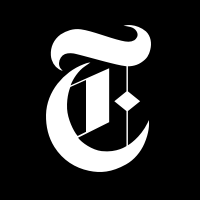Advertisement
Supported by
A handful of companies and labs quickly overhauled themselves to fulfill the sudden demand for coronavirus testing from the major American pro leagues.
By James Wagner
In early March, as the coronavirus was spreading across the United States and testing capacity was already a problem, Bill Phillips had an idea.
Phillips is the chief operating officer of a medical device company, Spectrum Solutions, that provides saliva test kits for companies like Ancestry.com. He wondered if Spectrum’s kits — which require customers to spit in a tube and ship their samples through the mail — could work with detecting this new virus.
“I just threw it out there: Why don’t we test our device to see if we can use it as a transport medium to get it to the lab?” Phillips recalled in a recent telephone interview.
Spectrum, based outside Salt Lake City, teamed up with a laboratory at Rutgers University, made a few tweaks and found that the effectiveness of their saliva test kit was comparable to the nasopharyngeal test, or the long swab, that was already in widespread use.
By mid-April, the Food and Drug Administration granted the Rutgers lab an emergency-use authorization. A month later, it received approval for the test kit to be used at home.
That saliva kit is now a key part of Major League Baseball’s plan to return to play, and has also been used by other revived sports leagues, including the PGA Tour and Major League Soccer.
With sports leagues desperate to salvage their seasons and profits, testing was always crucial — even more so now as the number of cases rises nationwide. But there was no blueprint, so a patchwork of businesses and labs, all with entirely different missions before the pandemic, converged to meet the need.
A version of Spectrum’s spit test, once used to help figure out family trees, is now spotting infections. Vault Health, a telehealth company that was focused on sexual health and weight-loss therapies for men, is now using Spectrum’s saliva kit and the Rutgers lab to help leagues conduct wide-scale testing. And the Sports Medicine Research and Testing Laboratory in Utah, which previously handled antidoping testing for M.L.B., is now processing coronavirus saliva tests for the league.
Dr. Daniel Eichner, the president and laboratory director of SMRTL, the shorthand name for the Utah lab doing M.L.B.’s coronavirus testing, acknowledged that there was “nothing good about this virus.” But, he said, he was proud of his team’s ability to pivot to this new challenge, like other companies.
“It’s a beautiful American story: When the chips are down, people jump in to contribute as best they can,” Dr. Eichner said.
Navigating the rapidly evolving world of coronavirus testing has been far from a simple task for professional sports leagues. They have had to weigh the efficacy and speed of various tests and companies, all while trying to ensure they would not be taking away resources from those who needed them more.
Advertisement

